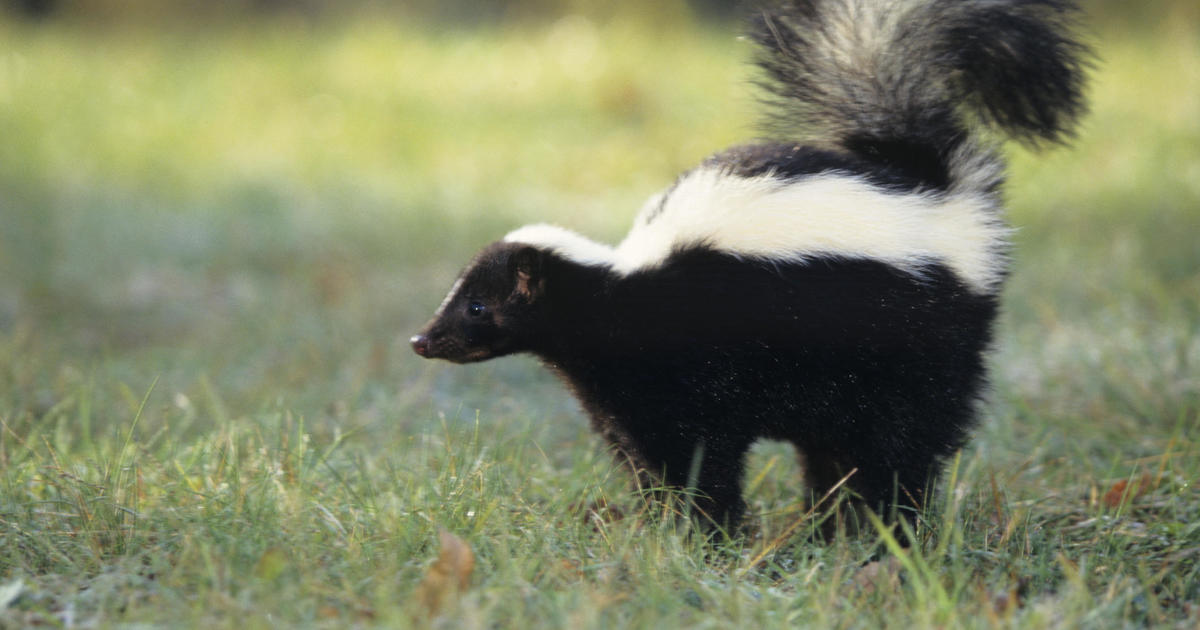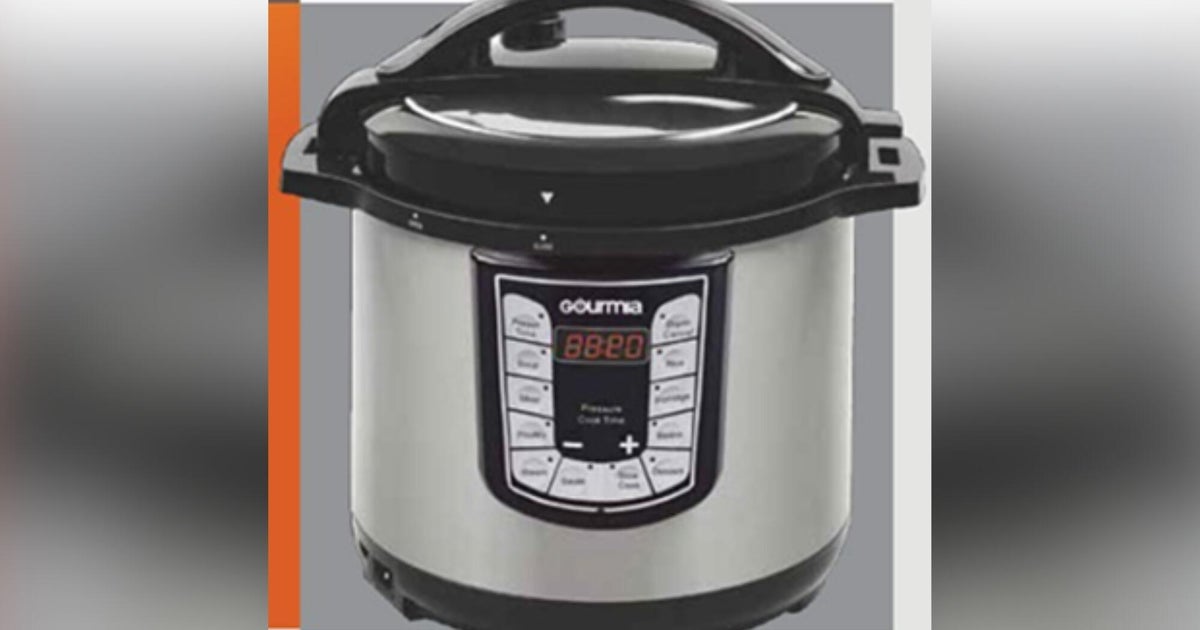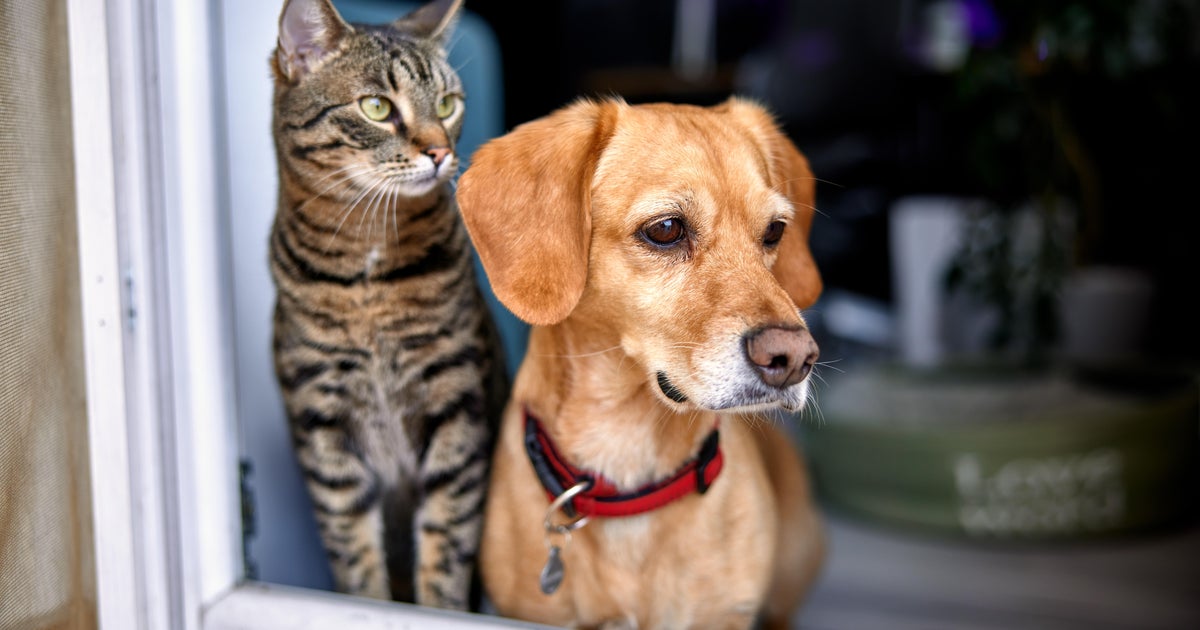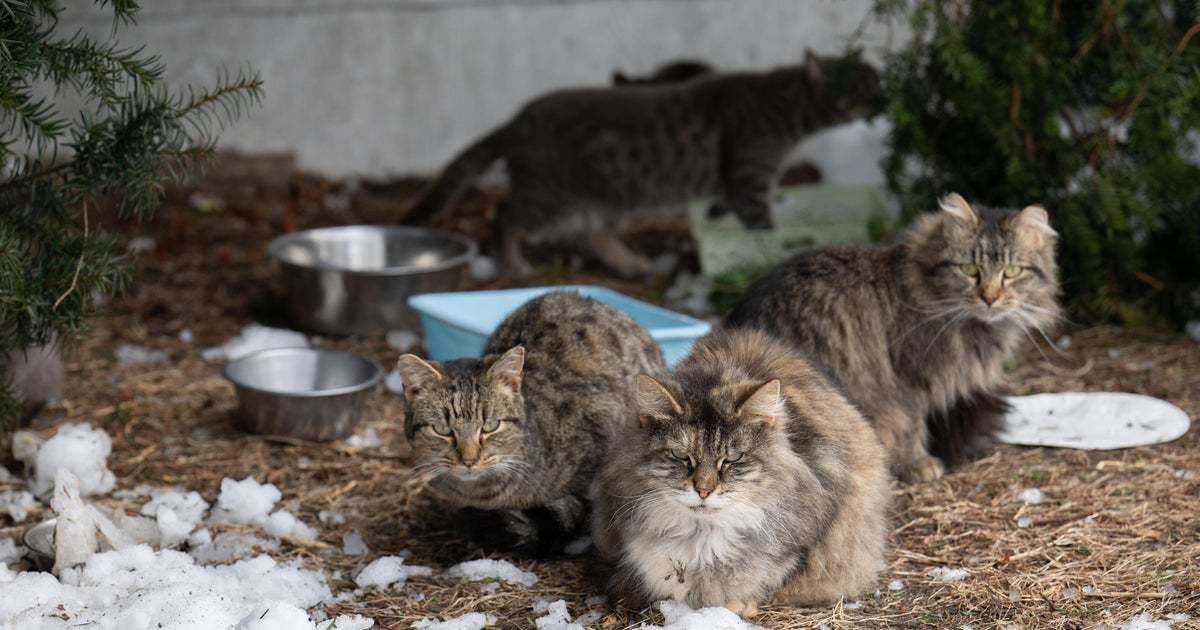Toss That Tinsel! The ASPCA Issues Pet Safety Tips For The Holidays
NEW YORK (CBS New York) - Part of what makes the holiday season so special are all the beautiful decorations and other items we bring into our homes. But did you know that some of those items can be dangerous to your pets?
The ASPCA® (The American Society for the Prevention of Cruelty to Animals®) is out with a list of helpful tips for ensuring your four-legged family members are kept happy and healthy throughout the festivities.
See the list of safety tips below, and check out this special edition of All For Animals with 1010WINS News Anchor Susan Richard (or click HERE to watch on YouTube):
DANGEROUS DECORATIONS:
- Candles are popular, but it's necessary to keep them out of reach of curious cats (and dogs) that might swat at flames, burn themselves or even knock candles over.
- It's also important to keep wires, batteries and glass or plastic ornaments out of paws' reach. A wire can deliver a potentially lethal electrical shock, and a punctured battery can cause burns to the mouth and esophagus.
- Shards of breakable ornaments are very sharp and could also be dangerous.
- Tinsel is extra appealing to cats who love sparkly, light-catching "toys" that are easy to bat around and carry in their mouths. But a nibble can lead to a swallow, which can lead to an obstructed digestive tract, severe vomiting, dehydration and possible emergency surgery.
TOXIC TABLE FOOD:
- Feeding your pet a bit of turkey is okay, so long as it has been fully cooked and is bone-free. Undercooked turkey may contain salmonella bacteria and bones could splinter and get lodged in your pet's digestive tract.
- A big no-no? Alcohol. Pets that ingest alcohol can become very sick and may fall into a coma, leading to an untimely death.
- Chocolate can cause a variety of symptoms such as vomiting, diarrhea, hyperactivity, abnormal heart rate and occasionally seizures. Grapes and raisins are also toxic to pets.
PESKY PLANTS:
- Lilies can cause kidney failure in cats.
- Holly and mistletoe also can be dangerous and cause gastrointestinal upset or, in rare cases with mistletoe, cardiovascular problems.
- Poinsettias are actually not as toxic as believed, but can cause mild to moderate gastroinestinal irritation.
- Christmas trees are not particularly toxic, but precautions should be taken to ensure the tree is securely anchored so it doesn't tip or fall. Tree water-which may contain fertilizers and bacteria that can cause stomach upset, nausea or diarrhea if ingested-also should be covered to protect pets from drinking it.
The ASPCA recommends non-toxic decorations such as wood, fabric or even pine cones.
If your dog or cat accidentally ingests a potentially toxic substance this holiday season, contact your local veterinarian or the ASPCA Animal Poison Control Center at (888) 426-4435 for immediate assistance.
(Note: All For Animals is a production of New Day Media and is placed on CBSNewYork.com as a courtesy.)







